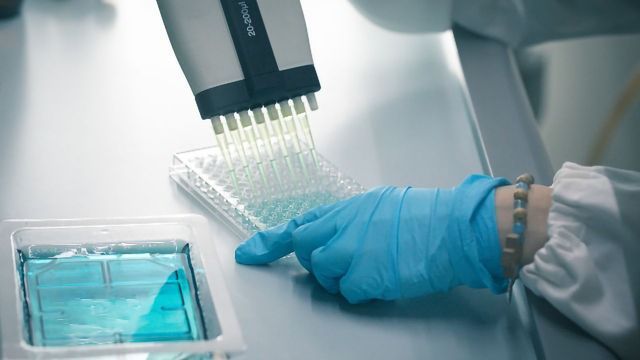
What Diseases Are Tested by ELISA?
Introduction
Enzyme-Linked Immunosorbent Assay, commonly known as ELISA, is a widely used laboratory technique that plays a crucial role in diagnosing and detecting various diseases. This article explores the significance of ELISA and the different diseases it is employed to test, shedding light on its importance in modern medicine.
- Understanding ELISA
ELISA washer is an immunological assay that detects and quantifies specific substances in a sample, such as antibodies, antigens, and proteins. It involves the interaction of antigens and antibodies to produce a measurable signal, indicating the presence of the target substance.
- ELISA Variants
Direct ELISA
In direct ELISA, the antigen of interest is immobilized on a solid surface, and a labelled antibody is used to detect its presence. This approach is straightforward and rapid.
Indirect ELISA
Indirect ELISA utilizes two antibodies: the primary antibody that recognizes the target antigen and the secondary antibody linked to an enzyme. This two-step process amplifies the signal and enhances sensitivity.
Sandwich ELISA
In sandwich ELISA, the target antigen is captured between two antibodies – one on the solid surface and the other labelled with an enzyme. This method is highly specific and allows for the detection of low concentrations.
Competitive ELISA
Competitive ELISA involves competition between a labelled antigen and an unlabeled antigen for binding to a limited number of antibodies. The amount of labelled antigen bound is inversely proportional to the concentration of the unlabeled antigen.
- Diseases Tested by ELISA
HIV/AIDS
ELISA is widely used to diagnose Human Immunodeficiency Virus (HIV) infection and Acquired Immunodeficiency Syndrome (AIDS). It detects HIV-specific antibodies or antigens in blood samples, helping identify infected individuals.
Hepatitis
ELISA is instrumental in diagnosing various types of Hepatitis infections, including Hepatitis B and C. It detects specific antibodies or viral antigens in serum or plasma, aiding in early detection and treatment.
Lyme Disease
Lyme disease, transmitted through tick bites, is diagnosed using ELISA to detect antibodies against the causative bacteria, Borrelia burgdorferi.
Celiac Disease
ELISA washer assists in diagnosing Celiac disease by detecting antibodies against gluten peptides in the blood, aiding in the identification of gluten intolerance.
Allergy Testing
ELISA is employed in allergy testing to identify allergen-specific IgE antibodies, enabling the diagnosis and management of allergies.
Autoimmune Disorders
ELISA helps diagnose autoimmune disorders like rheumatoid arthritis and systemic lupus erythematosus by detecting specific autoantibodies.
Cancer Markers
Certain cancer markers can be detected using ELISA, aiding in cancer diagnosis and monitoring treatment response.
Hormone Testing
ELISA measures hormone levels in various conditions, such as thyroid disorders and infertility.
Infectious Diseases
ELISA diagnoses various infectious diseases, including malaria, dengue, and influenza.
Foodborne Illnesses
ELISA is used to detect pathogens and toxins in food samples, helping prevent foodborne illnesses.
Veterinary Diagnostics
ELISA finds applications in veterinary medicine for diagnosing infectious diseases in animals.
Environmental Monitoring
ELISA is utilized in environmental monitoring to detect pollutants and contaminants in soil and water samples.
- Conclusion
ELISA is a versatile and powerful tool in the field of diagnostics, enabling the detection of various diseases with high specificity and sensitivity. ELISA is pivotal in modern healthcare, from infectious diseases to autoimmune disorders and cancer.
FAQs
Q1: Is ELISA a reliable diagnostic method?
Yes, ELISA is considered a highly reliable and sensitive diagnostic method, making it a valuable tool in disease detection.
Q2: Are there any limitations to ELISA?
While ELISA is a powerful assay, it may have limitations, such as potential cross-reactivity and requiring skilled technicians to ensure accurate results.
Q3: Can ELISA detect early-stage infections?
Yes, ELISA can detect infections early, allowing prompt treatment and better patient outcomes.
Q4: How long does an ELISA test take?
The duration of an ELISA test may vary, but it typically takes a few hours to complete.
Q5: Is ELISA used in research?
Yes, ELISA is extensively used in research settings for various applications, including protein quantification and biomarker analysis.


